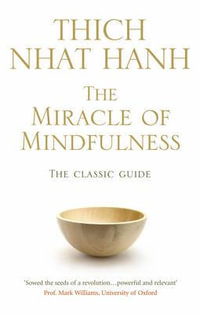This pioneering, interdisciplinary work shows how rituals allow us to live in a perennially imperfect world. Drawing on a variety of cultural settings, the authors utilize psychoanalytic and anthropological perspectives to describe how ritual--like play--creates "as if" worlds, rooted in the imaginative capacity of the human mind to create a subjunctive universe. The ability to cross between imagined worlds is central to the human capacity for empathy. Ritual, they claim, defines the boundaries of these imagined worlds, including those of empathy and other realms of human creativity, such as music, architecture and literature.
The authors juxtapose this ritual orientation to a "sincere" search for unity and wholeness. The sincere world sees fragmentation and incoherence as signs of inauthenticity that must be overcome. Our modern world has accepted the sincere viewpoint at the expense of ritual, dismissing ritual as mere convention. In response, the authors show how the conventions of ritual allow us to live together in a broken world. Ritual is work, endless work. But it is among the most important things that we humans do.
Industry Reviews
"In this whirligig world we do not know what to do apart from the done thing. Ritual and courtesy are, in contemporary parlance, suspect activities surplus to requirements. Like conformity, ritual attracts the adjectives 'mere,' 'meaningless,' 'external,' 'empty' and 'inauthentic.' This book brilliantly expounds the creative potential and the necessity of ritual, and exposes the destructive possibilities of sincerity. It could be seen as part of a Jewish
riposte to Christianity or a Confucian one to the Enlightenment, but Catholics and members of enclosed orders will like it too. Everybody should read it, especially American Protestants and post-Protestant
secularists who suffer more than most from the ills of sincerity." --David Martin, Emeritus Professor of Sociology, London School of Economics
"In this whirligig world we do not know what to do apart from the done thing. Ritual and courtesy are, in contemporary parlance, suspect activities surplus to requirements. Like conformity, ritual attracts the adjectives 'mere,' 'meaningless,' 'external,' 'empty' and 'inauthentic.' This book brilliantly expounds the creative potential and the necessity of ritual, and exposes the destructive possibilities of sincerity. It could be seen as part of a Jewish
riposte to Christianity or a Confucian one to the Enlightenment, but Catholics and members of enclosed orders will like it too. Everybody should read it, especially American Protestants and post-Protestant
secularists who suffer more than most from the ills of sincerity." --David Martin, Emeritus Professor of Sociology, London School of Economics
"An enormously important and paradigm-changing book. The audacity of its scope is refreshing--a turn to grand theory in an academic culture whose trend is to say more and more and less and less."Common Knowledge
"...A new, interesting, and very fruitful approach towards understanding and using the concept of 'ritual.'"--Religion
"The author clearly drew energy and inspiration from the process...."--Gabriel Robinson, Cambrisge

























